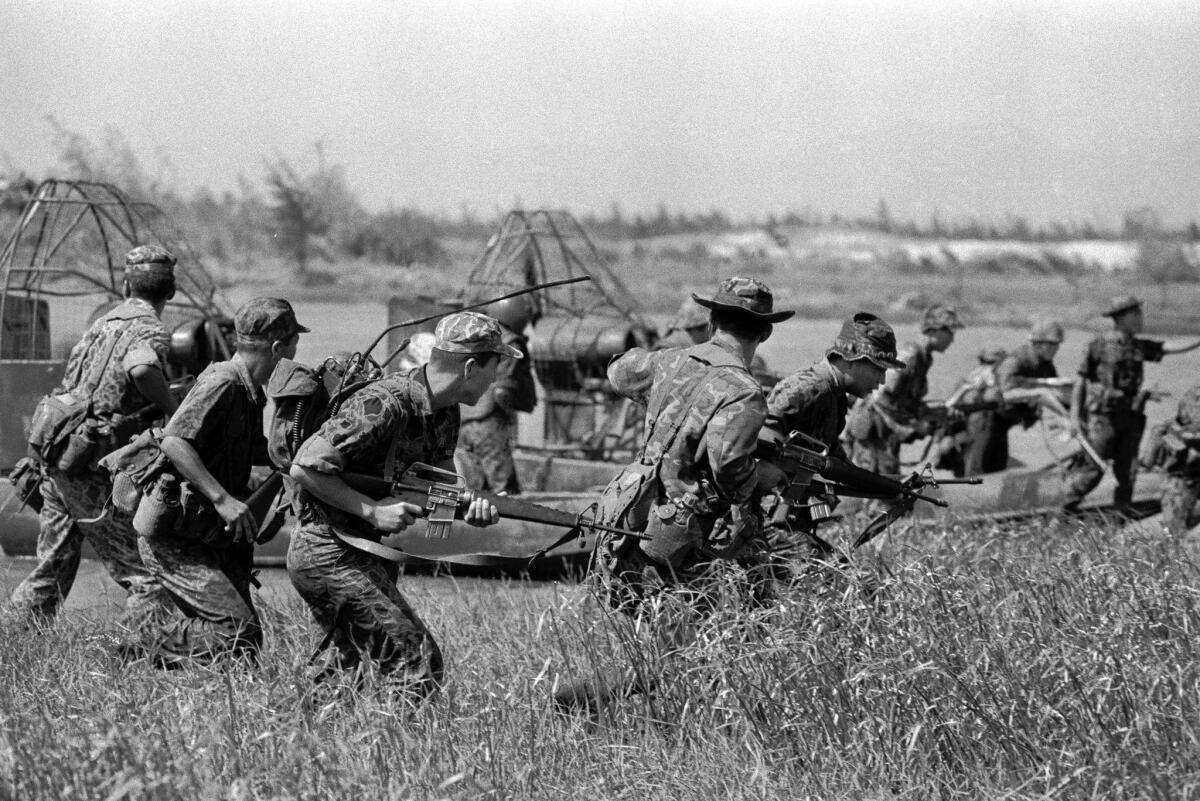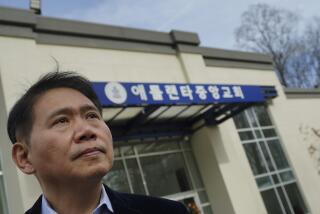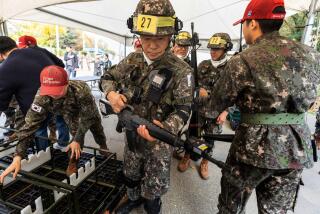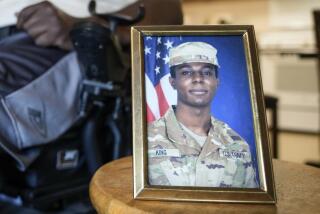Allegations of S. Korean atrocities arising 40 years after Vietnam War

Since he returned home to South Korea more than four decades ago, Kim Sung-wook’s service in the Vietnam War has been a source of pride.
The former soldier says he and the 300,000 other troops South Korea sent to the conflict sacrificed their youth and health to try to protect democracy.
But, he says, that legacy is under attack.
In early April, some Vietnamese who say relatives were killed by South Korean troops visited Seoul, the capital, to speak publicly about the issue. They accused South Korean soldiers of civilian massacres along the lines of what U.S. troops did in My Lai.
The South Korean government, however, has not acknowledged that any civilian massacres took place at the hands of its troops. Kim and his comrades protested outside the Seoul venues where the Vietnamese speakers appeared.
“Our service in the war was to protect the security of Vietnam,” Kim, secretary-general of a group called Korean Victims of Agent Orange Veterans’ Assn., said in an interview. “To claim otherwise is an affront to our honor.”
Kim , who served in Vietnam from 1967 to ‘69, said he knows of no South Korean soldiers who knowingly harmed civilians. He says that even though the North Vietnamese won the war, he and his fellow veterans should be remembered as heroes who fought for their country.
“We were being shot at from all directions and couldn’t always distinguish between Viet Cong and civilians when we returned fire,” the 67-year-old said.
This year is the 40th anniversary of the end of the war, which is providing an occasion for a sometimes-difficult and contentious reflection on the war despite strong economic ties between the two countries.
Seoul and Hanoi established full diplomatic relations in 1992, and bilateral trade reached $27.3 billion in 2013. The two governments last week signed a free trade agreement, which the Vietnamese government says will boost bilateral trade to $70 billion by 2020.
A large war memorial and museum in Seoul is mostly dedicated to the Korean War and has only brief mention of the Vietnam War. The capital has no memorials dedicated to the conflict in Vietnam. No major state events were planned to mark the anniversary of the war’s end. A state-sanctioned celebration for veterans was held last year — the 50th anniversary of the deployment of the first South Korean troops to Vietnam — despite a request from the Vietnamese government that it be canceled.
South Korean President Park Geun-hye visited Vietnam in 2013 and placed flowers at the mausoleum where late leader Ho Chi Minh lies in state, but made no mention of South Korea’s role in the war.
Among the reasons the Vietnam War legacy is being debated is the South Korean government’s insistence that Japan has yet to adequately apologize for its actions as colonial occupier of Korea from 1910 to ’45. The Japanese government issued official statements of guilt in 1993 and 1995 for World War II-era actions.
The topic of atrocities in Vietnam by South Korean soldiers was brought to broad public attention in the late 1990s in articles in left-leaning weekly newsmagazine Hankyoreh 21 by writer Koo Soo-jung, who was a graduate student in Vietnam during the war. After hearing murmurs about killings by South Korean forces, Koo researched government documents and interviewed villagers. In a series of articles, Koo told of villagers rounded up and slaughtered by South Korean troops and estimated as many as 8,000 civilian deaths.
Kim and others say that about 5,000 South Korean soldiers died in the Vietnam War and some returned with injuries and ailments caused by exposure to defoliants such as Agent Orange, which were employed by U.S. forces to kill the dense jungle that provided cover to the Viet Cong. Kim says that in combat he suffered only minor injuries, but since returning has battled mood swings and depression.
He says he understands why South Korea, a U.S. ally, joined the fight in Vietnam. South Korea’s president at the time, military dictator Park Chung-hee, argued that South Korea owed it to the U.S. to assist in the fight against communism in Vietnam to repay Americans for coming to South Korea’s aid in the 1950-53 Korean War.
Along with Park’s claims of wanting to be a good ally, scholars have pointed out that South Korean officials also saw the conflict in Vietnam as a pretext for developing South Korea’s military and economy. South Korea’s large commitment of troops led to billions of dollars in grants, loans and subsidies from the United States, as well as American support for Park’s authoritarian government.
“Park Chung-hee recognized that Korean participation in American military activities in Southeast Asia was the key to reversing the course of Korean weakness and setting the nation on a path of strength and assertiveness,” said Tae Yang Kwak, an assistant professor at Ramapo College in New Jersey who wrote his doctoral dissertation on South Korea’s role in the Vietnam War.
South Korean scholars say the government has kept much of the military’s records off limits and hasn’t investigated accusations of massacres by South Korean soldiers.
“There aren’t many ways to look into that ugly history,” said Choi Ho-rim, a professor at Dongguk University in Seoul and specialist on South Korea’s relations with Southeast Asia. “I think the government would prefer that Koreans have no memory of the war.”
Borowiec is a special correspondent.
More to Read
Start your day right
Sign up for Essential California for news, features and recommendations from the L.A. Times and beyond in your inbox six days a week.
You may occasionally receive promotional content from the Los Angeles Times.






